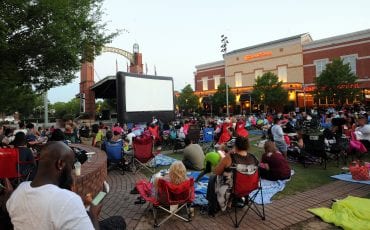How to Watch the Solar Eclipse in Atlanta

The Solar Eclipse will pass over Atlanta on April 8. While we aren’t in the path of totality, you should still be sure to step outside to take it in since your next chance will be in 20 years! The next total solar eclipse visible from the contiguous United States is 20 years away, on Aug. 23, 2044.
Table of Contents
Top Viewing Tips
- In the metro area, the eclipse will start around 1:45 p.m. with peak coverage of about 85% happening at 3:04 p.m. In Atlanta, the eclipse will end at 4:21 p.m.
- Never look directly at the sun without the proper protection! You need special glasses to protect your eyes while viewing the eclipse. If you’re ordering a viewer online, make sure you get them from an American Astronomical Society approved distributor; you can find a list at eclipse.aas.org/eye-safety/viewers-filters.
- Stay in the know about when the eclipse will be closest to your exact location with The Eclipse App. It’s available for Apple and Android devices.
Partial Solar Eclipse at Tellus Science Museum
Take in this natural phenomenon at the Tellus Observatory, watch livestreams, make a solar bead bracelet and create eclipse chalk art. April 8.
Get Crafty
Ready for some DIY action? You can make a pinhole viewing box at home to view the eclipse in three simple steps:
- Cut a hole in one side of a box (the longer, the better) or a piece of cardstock and cover it with aluminum foil.
- Use a pin to make a small hole in the center of the foil in your box’s window. The smaller the hole, the sharper the image of the sun will be.
- Stand with the sun behind you and let the sun shine through the pinhole onto a flat surface such as a second piece of cardstock.
Find the full directions for this project and other similar ones for young astronomers at jpl.nasa.gov/edu/learn
Want to travel to the path of totality?
Hop in the car and head to Paducah, KY. It’s the shortest drive from Atlanta to the path of totality at 382 miles or about 5 hours and 47 minutes, depending on traffic.
What is a solar eclipse?
When the moon casts its shadow on Earth as it passes between the Earth and sun, it’s referred to as a solar eclipse. A total solar eclipse, which will occur in certain parts of America on April 8, is when the moon appears to obscure the sun briefly and totally.
– Tali Benjamin







